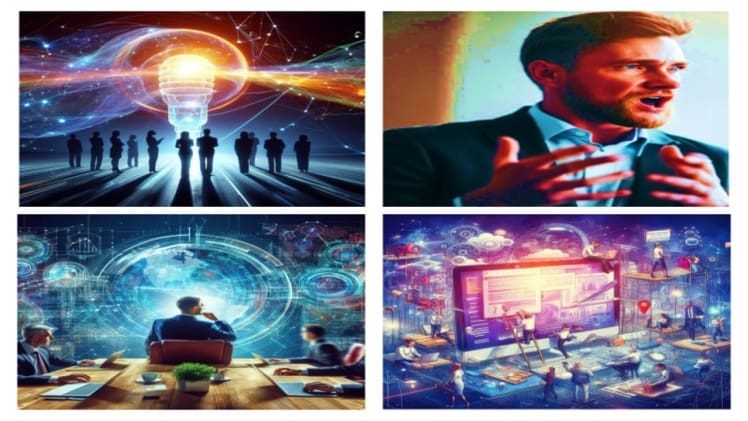Introduction
As the virtual gaming world continues to evolve, it’s not only a space for entertainment but also a dynamic arena for diplomacy and international relations. Online multiplayer games have become global platforms where players from diverse backgrounds come together, transcending borders to collaborate or compete in digital realms. This article explores the emergence of diplomacy within the virtual gaming world, shedding light on the ways in which gamers engage in diplomatic interactions that mirror real-world relations.
Global Meeting Ground: Bridging Cultures and Borders
Online multiplayer games serve as global meeting grounds, bringing together individuals from different countries, cultures, and walks of life. Games like “World of Warcraft,” “League of Legends,” and “Counter-Strike: Global Offensive” create virtual universes where players collaborate or compete in real-time, fostering interactions that transcend geographic boundaries pgslot แตกหนัก.
Within these virtual realms, players often find themselves navigating cultural nuances, languages, and perspectives, leading to a rich tapestry of diplomatic interactions. The shared objective of completing quests, achieving in-game goals, or outsmarting opponents becomes a universal language, creating a unique space where diplomacy unfolds organically.
Alliances and Treaties: Forge or Break Them
In strategy games and massively multiplayer online games (MMOs), alliances and treaties are common diplomatic elements. Players can form alliances to pool resources, share strategic information, and collaborate against common adversaries. The dynamics of these alliances often mirror real-world diplomatic negotiations, where trust, cooperation, and shared goals play pivotal roles nemo slot ไม่มีขั้นต่ำ.
On the flip side, alliances can be fragile, and treaties can be broken. Betrayals, espionage, and shifting allegiances create a dynamic diplomatic landscape, introducing an element of unpredictability that keeps players engaged in both the strategic and diplomatic aspects of the game.
Diplomatic Channels: In-Game Communication
Online games provide various communication channels, including text and voice chats, enabling players to engage in real-time diplomatic discussions. Whether negotiating trade agreements, forming alliances, or resolving conflicts, these channels serve as virtual diplomatic spaces where players exercise their negotiation skills.
Games like “EVE Online” even have player-elected governments and councils that engage in diplomacy on behalf of player factions. The in-game political landscape mirrors real-world diplomacy, with players engaging in debates, proposing policies, and making decisions that impact the virtual world’s geopolitical climate สบาย999 เว็บตรง สล็อตออนไลน์ ปลอดภัย มั่นคง 100%.
Cultural Exchange: Learning and Understanding
Virtual gaming spaces facilitate cultural exchange in unexpected ways. As players interact with individuals from different parts of the world, they inevitably encounter diverse languages, customs, and perspectives. This cultural diversity becomes an educational opportunity, allowing players to learn about and appreciate the richness of global cultures.
In-game interactions often lead to the exchange of anecdotes, traditions, and even language lessons. Virtual worlds become microcosms of the real world, promoting understanding and fostering friendships across cultural divides. These cultural exchanges contribute to a more inclusive and interconnected gaming community.
Digital Diplomacy: Real-world Impact
The concept of digital diplomacy extends beyond in-game interactions, with gaming communities often engaging in charitable endeavors and awareness campaigns. Events like charity livestreams, in-game fundraisers, and virtual marathons showcase the potential for the gaming community to make a positive impact on real-world issues.
Games have been used as platforms to address social and political issues, raising awareness about topics such as climate change, human rights, and global health. The collaborative spirit within gaming communities transforms virtual spaces into hubs of activism, demonstrating the capacity for digital diplomacy to influence real-world change.
E-Sports Diplomacy: International Competitions
The world of esports has evolved into a diplomatic arena where nations compete on a global stage. International esports competitions, such as the Overwatch World Cup and the League of Legends World Championship, see national teams vying for supremacy. These events transcend mere competition, serving as diplomatic platforms that showcase national pride and foster international camaraderie.
Players representing their countries become de facto ambassadors, and the spirit of competition often leads to cross-cultural exchanges and collaborations. E-sports diplomacy has the power to build bridges and strengthen connections between nations, demonstrating the potential of virtual competitions to foster goodwill on an international scale.
Conclusion
The virtual gaming world has become a playground for digital diplomacy, where players engage in complex interactions that mirror the intricacies of real-world relations. As technology continues to advance, the lines between the virtual and the real become increasingly blurred, opening up new possibilities for diplomatic engagement within the gaming community.
Building bridges through diplomacy in the virtual gaming world is not just a fanciful concept; it’s a reality that unfolds daily in online multiplayer games. Whether forging alliances, engaging in cultural exchange, or participating in international esports competitions, gamers are actively shaping a diplomatic landscape that reflects the interconnected nature of our globalized world.
The future holds exciting prospects for the convergence of virtual gaming and diplomacy, as technology, creativity, and a shared love for gaming continue to propel this dynamic relationship forward. As gamers from different corners of the world come together in virtual realms, they contribute to a global narrative of collaboration, understanding, and diplomacy, proving that even in the digital age, the quest for meaningful connections transcends the boundaries of screens and pixels.

